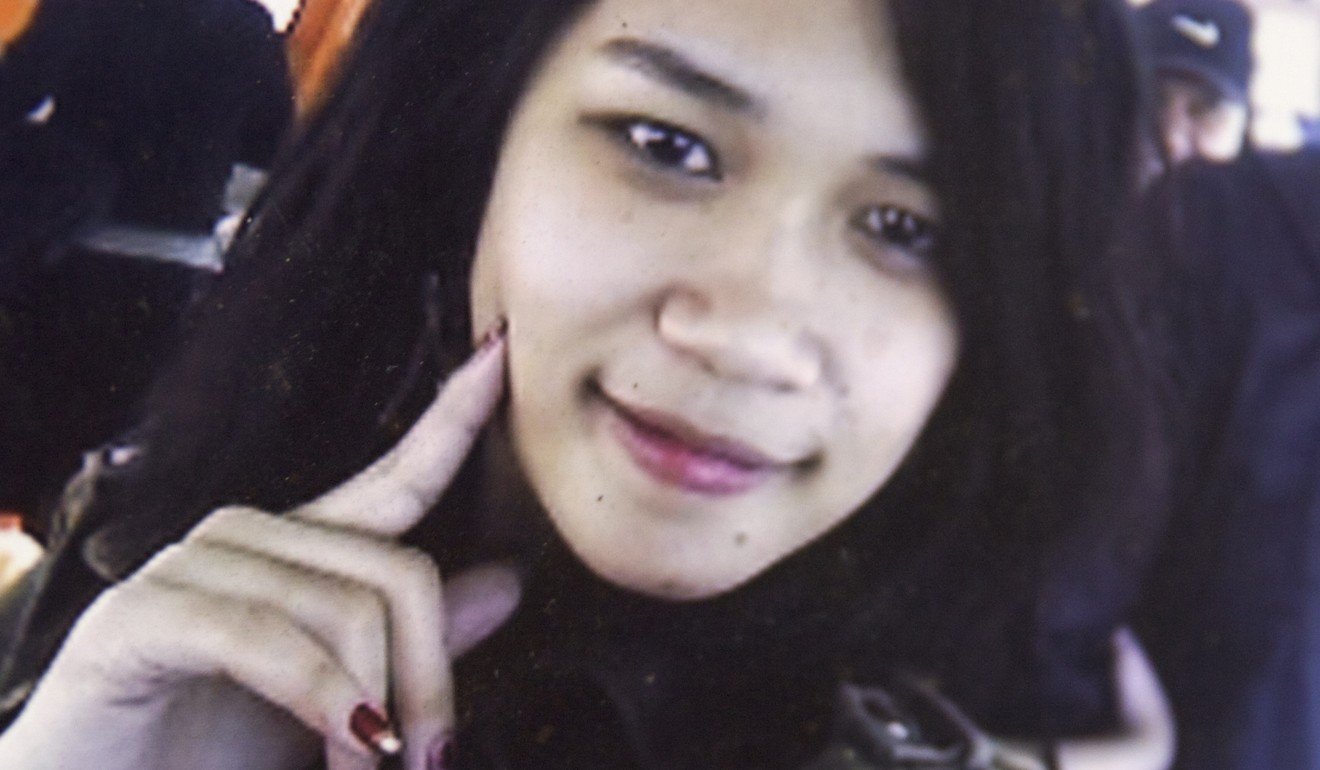
British banker Rurik Jutting fails to overturn double murder conviction in Hong Kong court
He will continue serving mandatory life sentence at maximum security Stanley Prison for killing two Indonesian women in 2014
Rurik Jutting, the British banker jailed for life in Hong Kong for brutally murdering two Indonesian women, failed on Friday to overturn his convictions.
Clad in a blue shirt, the Cambridge graduate, who was sentenced in November in 2016, nodded after learning the result he had been awaiting for almost two months. Before the hearing started, Jutting was still smiling at the prison officers accompanying him when he asked for their assistance to get his lawyers’ attention.
The former banker can still appeal to the city’s highest court, the Court of Final Appeal, but Friday’s failure means he will continue serving his mandatory life sentence at the maximum security Stanley Prison on the south of Hong Kong Island – where the city keeps some of its most notorious criminals.
It is not clear if Jutting intends to appeal further, as his lawyers did not make any comments before leaving court.
Sitting in the Court of Appeal, Mr Justice Michael Lunn, Justice of Appeal Andrew Macrae and Court of First Instance judge Kevin Zervos rejected Jutting’s case that the judge at his first trial misdirected the jury.
In a 52-page judgment, Lunn, the vice-president of the appeal court, said most of the direction being challenged had been given after consultation with Jutting’s lawyers, but they had taken no issue with it.
“For the reasons set out in the judgment of the court ... the defendant’s application for leave to appeal was refused,” Lunn said in a brief court hearing as he broke the news to Jutting.

He tortured Sumarti for three days with “increasingly cruel acts of violence using his belt, sex toys, a pair of pliers and his fists” until he eventually slit her throat on around October 27, according to prosecutors. Five days later, he took Seneng back to his flat and cut her throat, too.
Jutting sued by Indonesian victims’ families
They said the judge damaged the defence’s case by telling the jury to consider whether the banker had a narcissistic personality disorder and a sexual sadism disorder.
An abnormal mind was sufficient for the jury to diminish Jutting’s responsibility, but the judge had mistakenly thought it needed to be a disorder, Jutting’s barrister Gerard McCoy SC argued.
While a disorder can cause an abnormal mind, the reasoning went, a person’s mental state can be abnormal without a specific disorder.
Lunn countered on Friday that the direction was shown to Jutting’s barristers at the time and none of them took issue.
The judge noted that during court testimony, one of the prosecution’s psychiatrists said traits alone could not be regarded as indicative of an abnormal mind. This was not challenged by Jutting’s lawyers, Lunn said.
The appeal court endorsed the trial judge’s view that to fulfil the requirements of Jutting’s defence, the banker needed to convince the jury he had the disorders in question.

Jutting’s appeal lawyers also argued that the trial judge should not have let psychiatrists answer the so-called “ultimate question” of whether, if Jutting had such disorders, those mental conditions were so prevailing at the time of the murder that they had “substantially impaired” Jutting’s mind. It was a question for the jury, the lawyers said.
But Lunn said the judge was allowed to do so under certain circumstances.
“The judge told the jury repeatedly it was a matter for them what evidence they accepted and ... did not accept,” Lunn wrote.
Waitress killed by Jutting never saw house bought with her hard work
Stuart-Moore should not have advised the jury to return the same verdict for both killings, leaving no option of one murder conviction and one of manslaughter, the appeal lawyers also argued.
But Lunn said the trial judge had consulted with Jutting’s British barrister, Tim Owen QC, who did not object. The judge had also stressed to the jury it was only “advice”.

